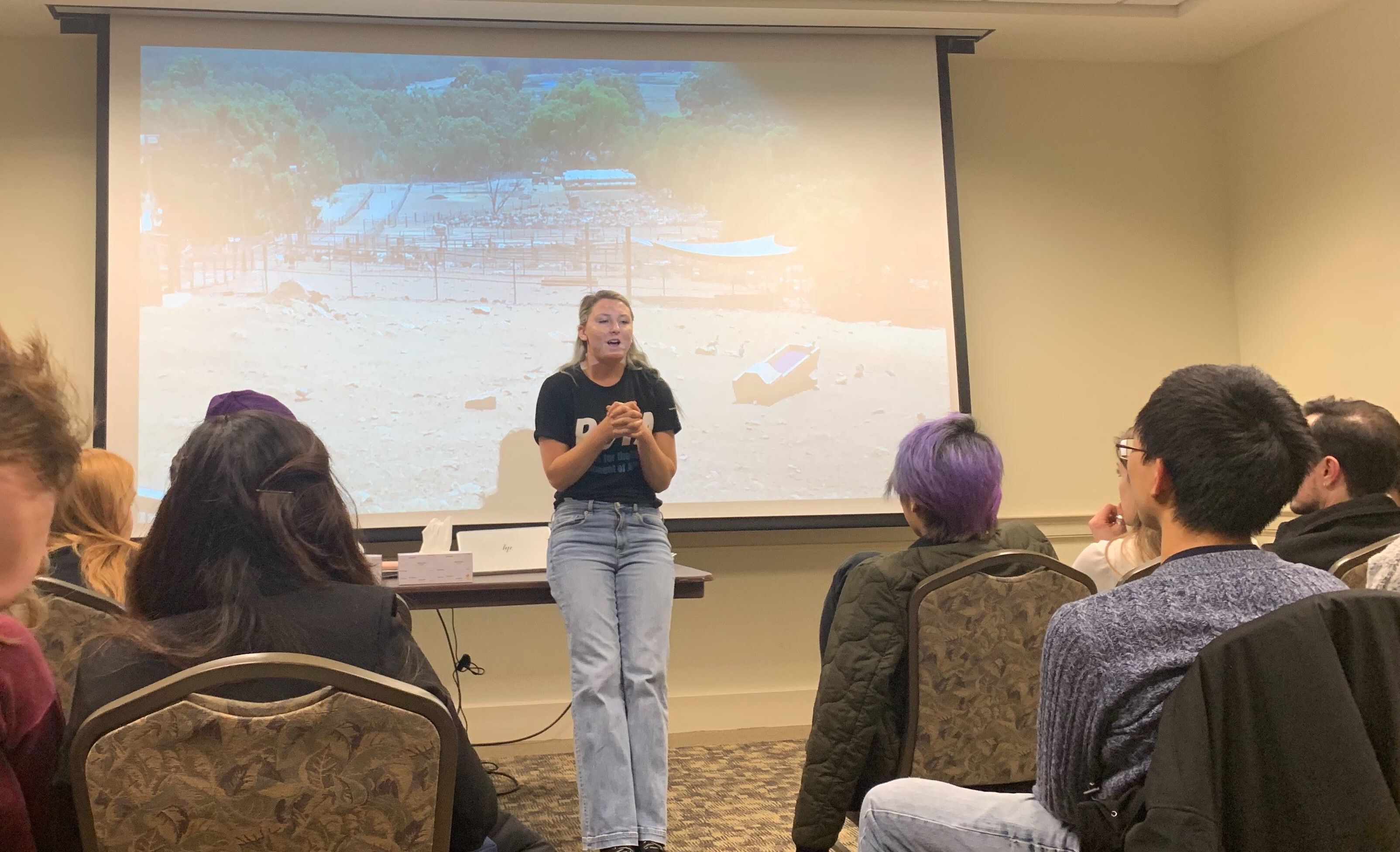By Kevin Hu
For The Diamondback
Pigs, trapped in small cages, screamed helplessly, unable to move as they were beaten and abused by factory farm workers.
These were scenes from Dominion, a documentary about animal agriculture and factory farming practices in the United States that was shown at the University of Maryland on Wednesday night.
More than 50 students and alumni attended the screening at Stamp Student Union, as part of an event hosted by this university’s chapter of Students for the Ethical Treatment of Animals.
The documentary highlighted the inhumane practices used in the rearing and slaughter of pigs and other animals kept in factory farms.
“A lot of people are unaware about what is going on in agriculture and factory farming,” said Maya Greenbaum, one of the event organizers.
[Read more: New vegan specials are available at all three dining halls]
Greenbaum, a freshman kinesiology major, said she hoped the film would teach audience members about the truth behind the production of common animal products.
“It’s second nature for people to be eating dairy, meat and eggs without thinking about what goes on their plate,” she said.
The group handed out goodie bags with a variety of vegan foods and coupons for vegan restaurants, and offered $5 to attendees for showing up.
Audience members chewed on Fruit Roll-Ups and vegan chips as the documentary showed the harrowing footage of sows in small cages that limited their range of motion, providing them enough space to feed their young and little more. Chickens, turkeys, and goats were also shown being reared in cramped conditions, then being slaughtered.
A theme running throughout the documentary — repeated by the narrator several times — was that all of the practices shown were legal.
[Read more: New vegan specials are available at all three dining halls]
Will Cervi, a freshman computer science major, said he came to the screening to educate himself about the animal industry.
“While I’m not vegan, I’m sort of interested in finding out stuff about the animal industry,” Cervi said, “I took my AP [Environmental Science] class and learned some stuff about it there, but I’ve never seen an intense documentary before.”
When people purchase meat, they don’t consider why it’s so cheap, he said.
“You can go to the grocery store and get ground beef for, like, a buck,” he said. “There’s a lot of reasons why it that’s cheap and it has a lot of consequences for animal rights.”
When animals were brought to be slaughtered, tools like electric prods and blunt instruments were used to force the reluctant animals into carbon dioxide gas chambers where they would suffocate and lose consciousness.
One audience member brought two huskies to help soothe crowd members who got agitated by the unsettling images.
Another organizer, Dyani Frye, said she got emotional when she saw the documentary for the first time. The best way to fight back against these practices is to go vegan, said Frye, a senior plant science major.
“[I’m] angry that this is happening,” Frye said, “that we aren’t being protected from it, and that people can see this and know that this is happening and still support the industry anyways.”
One of SETA’s goals is to promote veganism on campus. This semester, they’ve handed out cruelty-free moisturizers and sunscreens and held a vegan BLT sandwich giveaway, Greenbaum said.
In the future, she said, the group plans to continue doing giveaways “to show what you can be eating while vegan and how delicious it is.”



